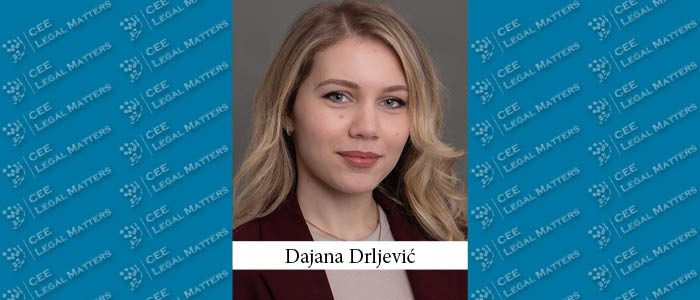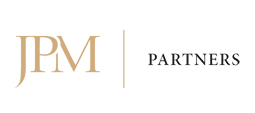Montenegro is not a member state of the European Union but rather a candidate country for membership, which status was granted on December 17, 2010. As such, European Union regulations are not directly applicable in Montenegro, however, many regulations have been harmonized with EU directives as a result of the harmonization process (acquis Communautaire).
The European Union seeks to unify the legal regulation of certain areas through the adoption of acts, such as guidelines. Although they are not legally binding on national authorities, the guidelines can have a significant positive impact on legal certainty.
European Commission has prepared draft Guidelines on the application of Article 102 of the Treaty on the Functioning of the European Union to the abusive exclusionary conduct by dominant undertakings, published on August 1, this year, while the period of consultation ends on October 31. Text of the draft is available on the link: 2024 article 102 guidelines - European Commission (europa.eu).
Article 102 of the Treaty on the Functioning of the European Union (‘TFEU') prohibits dominant companies from engaging in abusive practices that are capable of excluding competitors from the market. This is one of the few areas of European competition law where no Guidelines, still, clarify the application of the rules of the Treaty. However, the enforcement of Article 102 TFEU is key to ensuring that competition works effectively and that consumers can reap the benefits of competitive markets.
The Guidelines seek to establish, in line with the case law of the EU Courts, the principles on the basis of which it is determined whether there is an abuse of a dominant position in accordance with Article 102 TFEU. It should be pointed out that this article does not prevent the independent achievement of a dominant position in the market due to abilities and skills, but it is forbidden to abuse such a position.
Guidelines make a difference between the dominant position held by one or more undertakings. The existence of a dominant position depends on and is assessed in relation to the circumstances of each case and the analysis of the position of the market, and in particular of the market shares. It is also relevant to determine the existence of barriers to market expansion and entry that prevent actual competitors from expanding their activities on the market or that prevent potential competitors from gaining access to the market
Some barriers have been found and detected to include: tariffs or quotas, planning regulations, licensing requirements and authorization requirements, statutory monopolies and intellectual property rights, established distribution and sales network, vertical integration and exclusive or preferential access to inputs or customers, access to critical raw materials, inertia of doctors in their prescribing habits, etc.
When it comes to collective dominance it has been found that some of the elements that give rise to a connection between undertakings enabling them to act together independently of their competitors, their customers, and consumers may be reaching terms of coordination, ability to monitor adherence to terms of coordination, the existence of a credible deterrence mechanism, external stability – lack of constraints exercised by actual or potential competitors and lack of countervailing power by customers.
Guidelines also established general principles applicable to the assessment of whether conduct by dominant undertakings is liable to be abusive. It is determined that the concept of abuse is an objective one and is generally not necessary to show that an undertaking had the intent to impair effective competition in order to establish an abuse of a dominant position.
To determine whether conduct by dominant undertakings is liable to constitute an exclusionary abuse, it is generally necessary to establish whether the conduct departs from competition on the merits and whether the conduct is capable of having exclusionary effects.
The concept of competition on the merits covers conduct within the scope of normal competition on the basis of the performance of economic operators and which, in principle, relates to a competitive situation in which consumers benefit from lower prices, better quality, and a wider choice of new or improved goods and services, which provides such competitor. Guidelines further determine relevant factors to establish that conduct departs from competition on the merits.
The guidelines also determine the ability to produce an exclusionary effect by establishing the burden of proving that the conduct may lead to an exclusionary effect. The categorization of behavior has been made into conduct for which it is necessary to demonstrate a capability to produce exclusionary effects, conduct that is presumed to lead to exclusionary effects, and naked restrictions.
The case law of the Union Courts has developed specific analytical frameworks to establish whether certain types of conduct by dominant undertakings infringe Article 102 TFEU (specific legal tests as referred in Guidelines), which represents concretization of general principles.
Specific legal tests have been developed for five types of abuse classified as: exclusive dealing, tying and bundling, refusal to supply, predatory pricing, and margin squeeze.
Guidelines recognize specific conduct for which Union Courts did not develop specific tests but have provided guidance as to how to apply general legal principles.
Finally, Guidelines determine general principles applicable to the assessment of objective justification of certain conduct.
It may be defended that certain conduct is objectively justified and does not violate article 102 of the TFEU if it is objectively necessary (objective necessity defense) or produce efficiencies that counterbalance, or even outweigh, the negative effect of the conduct on competition (efficiency defence).
By Dajana Drljevic, Associate, JPM & Partners


